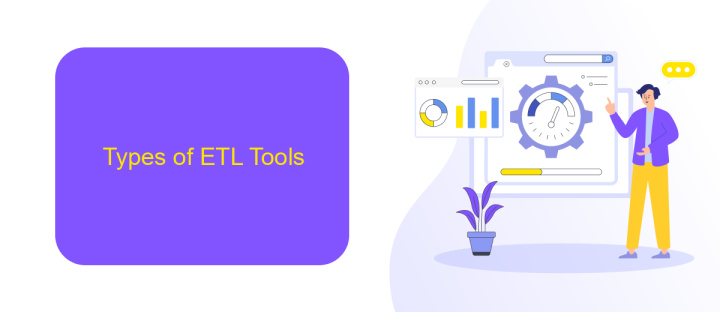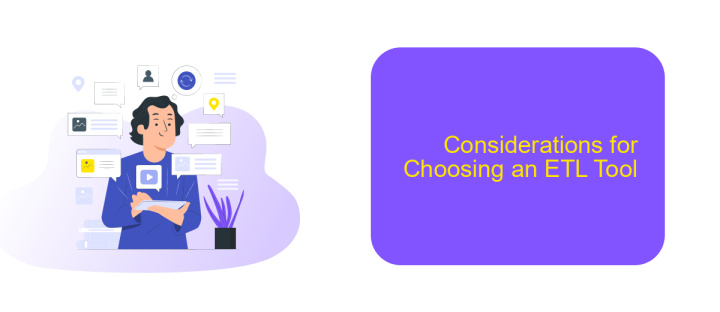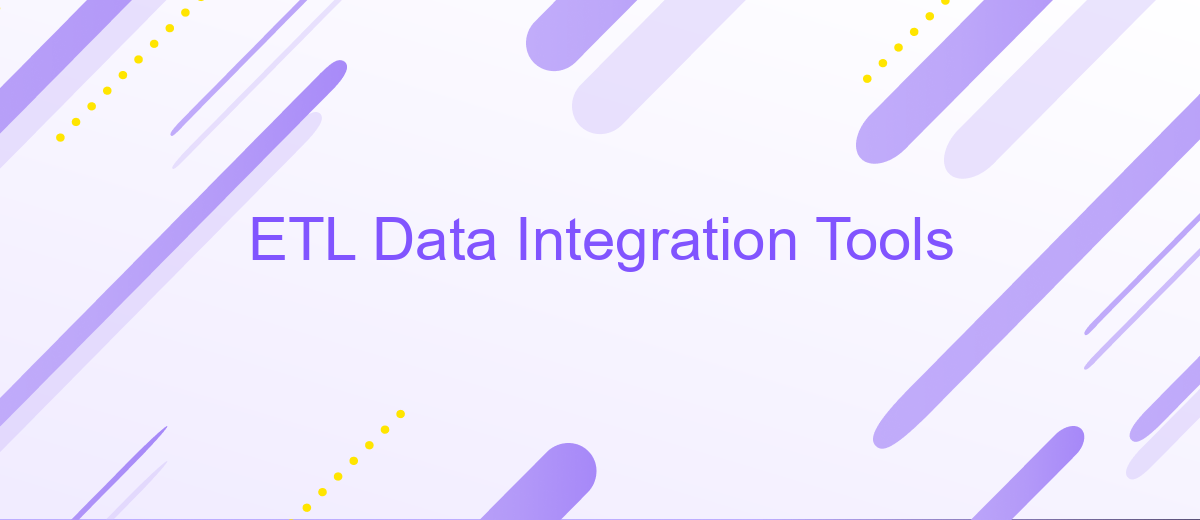ETL Data Integration Tools
ETL (Extract, Transform, Load) data integration tools are essential for modern data management, enabling organizations to efficiently gather, process, and consolidate data from various sources. These tools streamline the data pipeline, ensuring accuracy and consistency, which is critical for informed decision-making. This article explores the key features, benefits, and popular options in the ETL landscape to help you choose the right solution for your needs.
Introduction
ETL (Extract, Transform, Load) data integration tools are essential for modern businesses to manage and optimize their data workflows. These tools facilitate the extraction of data from various sources, transformation into a suitable format, and loading into a destination system. As data becomes increasingly integral to decision-making processes, the demand for efficient ETL tools has grown significantly.
- Data extraction from diverse sources such as databases, APIs, and flat files.
- Data transformation to clean, enrich, and structure data appropriately.
- Data loading into target systems like data warehouses, data lakes, or BI tools.
Choosing the right ETL tool can significantly impact the efficiency and accuracy of data integration. Tools like ApiX-Drive simplify the setup of data integrations by offering user-friendly interfaces and robust automation features. By leveraging such tools, businesses can streamline their data processes, reduce manual effort, and ensure data consistency across their systems.
Types of ETL Tools

ETL tools can be broadly categorized into several types based on their functionality and deployment methods. Traditional ETL tools, such as Informatica PowerCenter and IBM DataStage, are on-premises solutions that offer robust data integration capabilities. These tools are designed for large-scale data processing and are often used by enterprises with extensive data infrastructure. On the other hand, cloud-based ETL tools like Talend Cloud and AWS Glue provide scalability and flexibility, making them ideal for organizations looking to leverage cloud environments for their data integration needs.
Another category includes open-source ETL tools like Apache Nifi and Pentaho Data Integration, which offer community-driven development and customization options. These tools are popular among organizations with limited budgets but require extensive customization. Additionally, there are specialized ETL tools like ApiX-Drive, which focus on simplifying the integration process through pre-built connectors and user-friendly interfaces. ApiX-Drive is particularly useful for small to medium-sized businesses looking to automate data workflows without extensive technical expertise. Each type of ETL tool has its unique advantages, making it essential to choose one that aligns with your specific data integration requirements.
Benefits of ETL Tools

ETL (Extract, Transform, Load) tools provide a robust solution for managing and integrating data from various sources into a unified system. These tools streamline the data integration process, making it easier for organizations to access and analyze their data efficiently.
- Data Consistency: ETL tools ensure that data from different sources is consistent and reliable, reducing the risk of errors.
- Time Efficiency: Automating the data integration process saves significant time and resources, allowing teams to focus on data analysis.
- Scalability: ETL tools can handle increasing volumes of data, making them suitable for growing businesses.
- Data Transformation: These tools provide advanced transformation capabilities, enabling the conversion of data into the desired format for analysis.
- Integration with Multiple Sources: ETL tools can integrate data from various platforms, such as databases, cloud services, and APIs.
Services like ApiX-Drive can further enhance the benefits of ETL tools by providing seamless integration setups and automated workflows. ApiX-Drive simplifies the connection between different data sources, ensuring a smooth data flow and reducing manual intervention. This results in more efficient and reliable data management, empowering businesses to make data-driven decisions.
Considerations for Choosing an ETL Tool

Choosing the right ETL tool is crucial for efficient data integration and transformation. The decision should be based on various factors that align with your business needs and technical requirements. Firstly, consider the scalability of the tool. Can it handle increasing volumes of data as your business grows? Another important factor is ease of use. Tools like ApiX-Drive offer user-friendly interfaces that simplify the integration process, making it accessible even for non-technical users.
Additionally, evaluate the compatibility of the ETL tool with your existing systems and data sources. Does it support the databases, cloud services, and applications you currently use? Cost is another significant consideration. Analyze the pricing model to ensure it fits within your budget while providing the necessary features.
- Scalability
- Ease of use
- Compatibility
- Cost
Lastly, consider the support and documentation provided by the ETL tool vendor. Reliable customer support and comprehensive documentation can be invaluable when troubleshooting issues or optimizing your data workflows. By carefully evaluating these factors, you can select an ETL tool that best meets your business objectives and technical needs.


Current Trends and Future Outlook
ETL data integration tools are increasingly leveraging cloud-based solutions, artificial intelligence (AI), and machine learning (ML) to enhance their efficiency and scalability. The adoption of cloud technology allows for more flexible, scalable, and cost-effective data integration processes. AI and ML are being used to automate data mapping, transformation, and error detection, reducing the need for manual intervention and improving accuracy.
Looking ahead, the future of ETL tools is set to be shaped by advancements in real-time data processing and integration. Tools like ApiX-Drive are leading the way by offering seamless integration capabilities across various applications and platforms, enabling businesses to automate workflows without extensive coding knowledge. As organizations continue to prioritize data-driven decision-making, the demand for more intuitive, user-friendly, and automated ETL solutions will only grow, making data integration more accessible to a broader range of users.
FAQ
What is ETL in the context of data integration?
Why is ETL important for businesses?
What are some common challenges faced during ETL processes?
How can automation improve ETL processes?
Can ETL tools integrate with cloud-based applications?
Apix-Drive will help optimize business processes, save you from a lot of routine tasks and unnecessary costs for automation, attracting additional specialists. Try setting up a free test connection with ApiX-Drive and see for yourself. Now you have to think about where to invest the freed time and money!

